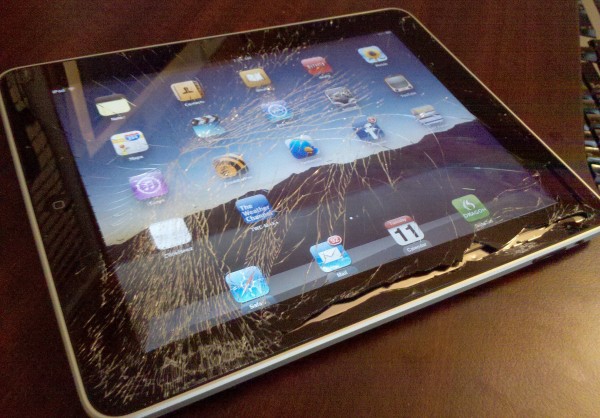To the surprise of almost no-one, Amazon updated the Kindle recently. It’s thinner, more sleek looking – and, most importantly, cheaper.
Way cheaper. In fact, the $139 Wi-Fi only model is almost a third the price of the original Kindle. And rather than that model’s, shall we say, unattractive design, this new Kindle looks pretty damn nice. So, fine. It’s cheaper. It’s sexier. No big deal, right?
Wrong. Amazon just showed how they’re going to win the eBook wars against Apple.
So how are they going to accomplish this feat against one of the few companies – and certainly the biggest – to have made digital media work?
Forget Hardware
Apple’s approach to digital media has been relatively simple: make lots of it available, and make it work best with Apple products. The point, at the end of the day, is to sell hardware.
What a lot of people don’t realize is that the App Store makes a very small amount of profit. For all intents and purposes, it’s a break-even biz meant to push iOS devices which, we hear, Apple may be making a little bit of money on.
Amazon is taking quite a different approach. Instead of attempting to use content to drive hardware, Amazon is doing the opposite: selling cheap hardware to drive their content business.
Now, by itself, this may be nothing huge. The amount of revenue Apple pulls in selling iPhones, iPods and iPads absolutely dwarfs Amazon book sales. But, rather than attempting to beat Apple in the hardware game, Amazon are doing what makes sense: trying to beat iBooks.
How? Simple: by tackling both ends of the market – hardware and content – Amazon have positioned themselves to become the default eBook provider for the English-speaking world.
Why Platform Neutral = Win
See, if you want to buy a book available on the Kindle store, you don’t have to buy a Kindle. Unlike iBooks, which requires that you own an iOS device to read a book on the Go, Kindle can be read on a variety of devices, whether PC, Android, Blackberry – or, yes, iOS devices.
Think of it this way: there is tons of stuff available on the iTunes video store. But to use it, you have to own Apple stuff – and to use it on your TV, you have to own an Apple TV. But if you buy a DVD, it doesn’t matter if your player is made by Sony, Samsung, or is the Hitachi drive in your PC or Mac. Amazon’s approach is much closer to the latter than the former.
So what would you rather have? An eBook you can read anywhere that syncs between all those devices, or one that is constrained to a much more closed ecosystem?
Why Amazon Are Set Even if Kindle Fails
A while ago, I said that the Kindle was toast. And in terms of hardware sales, I still believe the Kindle will be absolutely dwarfed by the iPad.
But by making themselves the default brand for books – and, with this new pricing, a Blackberry/Android app, making themselves way more accessible than Apple – Amazon will likely be the first thing that comes to mind when it comes to books. What’s more, by positioning Kindle as a platform, rather than simply a device, Amazon are protected should the Kindle hardware business start to drop off.
After all, the millions of people who buy iPads will also be reading books on Kindle, in part because the Kindle app is on par with iBooks. Something similar can be said for the incredible surge in Android devices, or the continuing popularity of Blackberries. What’s more, by making their new Kindle so affordable, they have radically expanded the market for ebooks, particularly when even the cheapest iPod Touch is nearly $200.
By reducing the price to near commodity levels Amazon have really set themselves up to capitalize on both ends of the book market, both hardware and content. And in doing so, they seem poised to do what almost no-one else has seemed able to: finally be the ones to beat Apple at something in the new digital media game.


So angry…
Not to mention last I looked, Amazon has about 620K titles. iBooks launched with around 60K. Most titles I searched for on iBooks aren’t available, even lots of classics. Amazon has pretty much everything.
Interesting perspective. However, I think many the points made might end up hurting Amazon in the long run. As mentioned there’s no way a dedicated single purpose device can outpace a multipurpose one. Sure, $139 is cheaper than an iPod, but the Kindle performs less than half the functions of an iPod Touch and is more than half the price. In order for Kindle to win it will have to survive off sales of ebooks purchased on other hardware. That means that Amazon’s profits need to come from book sales not hardware. Now that model worked fine with normal printed books but if Apple only needs to break even with iBooks while Amazon has to maintain a steady profit, Apple will have a sizable competitive advantage. Obviously selection, availability, and universality, are other factors so it’s still too close to call. But I still feel that people won’t mind a more restrictive ecosystem if they can get a comparable service at a cheaper price on hardware they already own (currently prices are about even but I imagine they will drop in time).
The other argument worth mentioning is that while Amazon is clearly competing with Apple, Apple isn’t really threatened by Amazon. Apple launched iBooks so it can position the iPad (and iPhone/iPod Touch) as eReaders to increase hardware sales. In many ways, the availability of Kindle for iOS accomplishes that goal as well.
I certainly appreciate (and welcome) the attempts of multiple players in the bookstore of tomorrow, I just think Apple should shed any tears.
ROFLOLZ jonathan i saw ur Grav and was like naw it couldnt be. nice one.
First off, Amazon’s hardware sales are going to tank BECAUSE the software is available on other platforms, including the iOS devices. So scratch that revenue. So you’re buying a Blackberry, DELL (Android), or (doubtful) an HP/PalmOS device now. Which one of these has all the content of iTunes (movies, TV, podcasts, books, apps, soon magazines + newspapers)? None. Where is Microsoft in this? Lost.
People are smart — they will buy the one device that seems to give them everything. For on-the-go people, that will be an iPhone. For at-home people, that will be the iPad.
The best competition against Apple right now (in the iPad space) will be DELL with Android. The best competition against Apple right now (in the iPhone space) will be Android phones — all different hardware manufacturers with a myriad of screen resolutions etc. Android apps will suffer because of that.
There’s just too many years of technology behind what Apple does (Going back to the early 90’s with Nextstep) and finally culminating now. Kindle is the next Osbourne, neat at first and then rapidly eclipsed. I know you mention this in your article, but Kindle as an app (please don’t call it a platform — that is an injustice to the word “platform”) can’t survive when the SAME content is available via iBooks (which will soon be the case). Apple needs to watch out for Google, not Amazon, who will by the way maintain a dominant position in DVDs and printed books.
This is why most of the people I know like and prefer the Kindle and Amazon eBooks, they can read the same book and bookmark it from separate devices and continue where they left off on any device that picks up the book.
Interesting article, I wonder why the vast majority of users still prefer the iPad over the Kindle,
brand loyalty can do wonders, users buy products based on their emotions, not thinking on costs.
That’s why iPhone4 users will actually get to deny that the reception on their phone is subpar, even after consumer report tanked the iPhone4 because of this very issue.
It’s amazing..
this might answer your question: